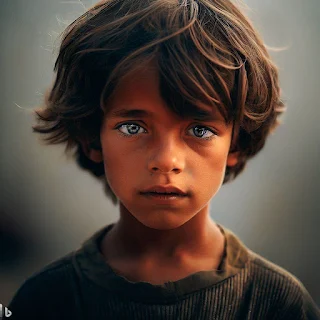Bacha Bazi in Afghanistan
Bacha Bazi, or sexual exploitation of young boys by powerful individuals from poor families, has existed for centuries and often leaves its victims no choice but to comply.
While Afghan authorities have taken steps to criminalise this practice, more needs to be done - currently it falls to family members of victims to report abuse.
It is a form of child trafficking
Bacha Bazi is a form of child trafficking where young boys are sold as sexual slaves. This practice is widespread in Afghanistan's northern parts, where powerful men target attractive boys to take advantage of their sexual prowess for sexual slavery purposes. These boys may wear feminine clothing and dance for patrons in front of an unsuspecting public while their families remain unaware.
While bacha bazi was forbidden under Taliban rule, its popularity has seen an alarming resurgence since their fall. Many members of Afghanistan's government and armed forces participate in this practice that's considered a sign of wealth and status.
Although Afghanistan has increased law enforcement efforts, this issue still persists due to numerous high-level connections among perpetrators with judicial officials allowing them to avoid punishment. Furthermore, Dari language uses one word for human trafficking and migrants smuggling, leading authorities to associate these crimes together as one crime.
The 2017 Law to Combat Trafficking in Persons and Smuggling of Migrants criminalized sexual sex trafficking, including bacha bazi. However, penalties did not reflect other serious crimes as expected. To address this situation more adequately, several ministries including Ministry of Justice began providing education on this matter but there is much work yet to be done on this front.
It is a form of sexual exploitation
Bacha bazi, in which young boys are sexually exploited for entertainment and pleasure, is making a comeback in post-Taliban Afghanistan. This practice typically involves selling prepubescent boys from low-income families to wealthy patrons for sexual pleasure; additionally they may be forced to perform feminine gestures and dance to please their masters; all of this facilitated by corruption, lawlessness and poverty; often living apart from society while suffering psychological and health issues as a result.
Bacha bazi can be traced back to ancient cultures throughout Central Asia, but has recently emerged in modern form during the 19th century. Most commonly practiced within Pashtun culture, this form of entertainment involves wealthy patrons--usually male--acquiring young boys for sexual entertainment or sex with wealthy patrons; since women cannot dance publicly due to restrictions placed upon public performance venues, these boys perform feminine dancing for their patrons as women can't do. Parents are persuaded to hand over their sons by promises of financial reimbursement or else their sons may return home safely!
Though illegal, this practice has become an all-too-common one in Afghanistan. Its prevalence can be explained by lack of legal framework to combat it and government appeasement with militia leaders; further compounded by secrecy surrounding abuse and victims remaining silent about incidents. According to a 2014 report from Afghan Independent Human Rights Commission (AIHRC), many involved with bacha bazi pay bribes to law enforcement officials or develop relationships with prosecutors or judges so as to escape prosecution for their illegal acts.
It is a form of violence
Bacha Bazi, or forced dancing at private events and sexual abuse of young boys by adults is an unspoken form of violence and an ever-growing issue in Afghanistan. Facilitated by gender segregation policies and male-dominant cultures, this practice often violates religious laws yet those involved often claim that Bacha Bazi does not break religious prohibitions.
Bacha Bazi is made easier by widespread poverty, illiteracy, domestic violence and lack of law enforcement. While the new Afghan Penal Code criminalizes this practice, its successful implementation requires cooperation from judicial and police forces.
People involved with this practice often use boys for sexual pleasure and to demonstrate wealth and status, dressing them in women's clothes and taking them to parties and wedding ceremonies to dance for male audiences. Their abuse often goes unpunished despite physical and psychological violence done against these boys; many suffer trust issues, pessimistic feelings and low self-esteem after participating in this practice.
Abuse of these boys violates their human rights and must stop. Child sex slavery leaves victims without skills or hope for a bright future; such violence cannot exist anywhere, and in Afghanistan the government should take measures to end it.
It is a form of abuse
Bacha Bazi (or Boy Play), as it's more commonly known, is an act of sexual abuse and modern day child sex slavery which endangers young boys' lives. The practice, often illegal, involves men purchasing or taking boys from their families before forcing them to dance for them as slaves. Bacha Bazi also constitutes trafficking as these boys must leave home and travel far distances before being trafficked for dancing purposes - which puts them at greater risk from harm.
Exploitation of Afghani boys is a serious issue. Corruption runs rampant in Afghanistan, and officials often collude with those perpetrating crime against these young boys. Furthermore, this issue is compounded by weak legal systems, corporatism and poverty which further worsen this crisis.
These practices violate human rights, especially the right to life and liberty, leaving victims psychologically damaged and unable to reintegrate back into society. Trust issues and pessimism often contribute to social isolation while job searches prove fruitless and marriage may remain impossible, compounding their problems further.
Reviving bacha bazi could have serious repercussions for women in Afghanistan, already facing diminished rights under Taliban rule. Reinforcing traditional gender norms such as that "women are for children, while girls are for pleasure", it also violates international law and should be condemned immediately.













No comments:
Post a Comment